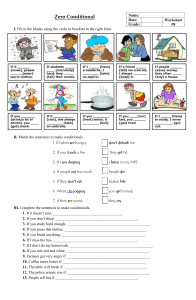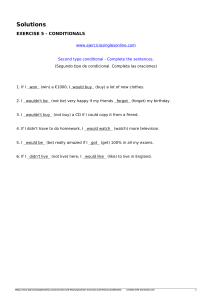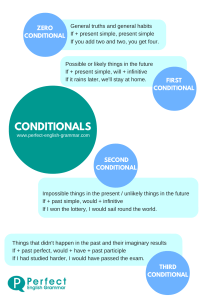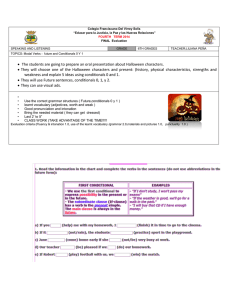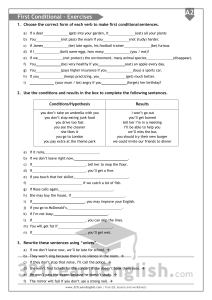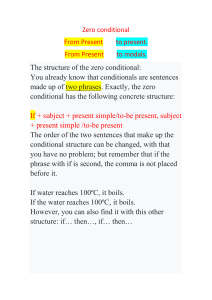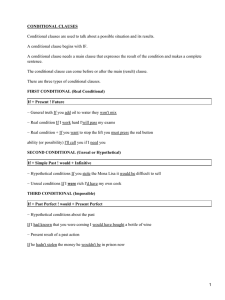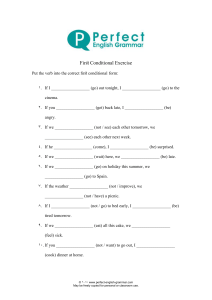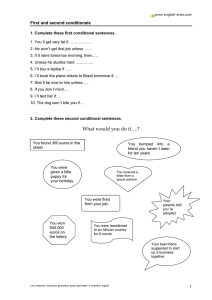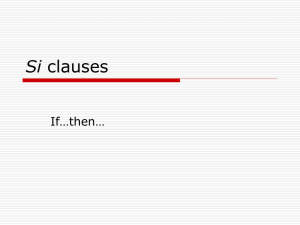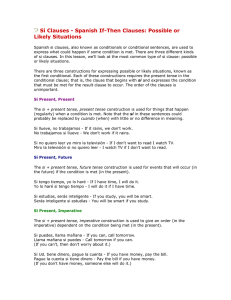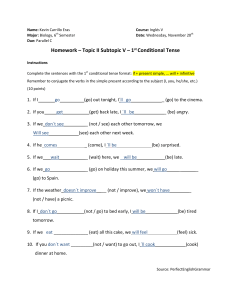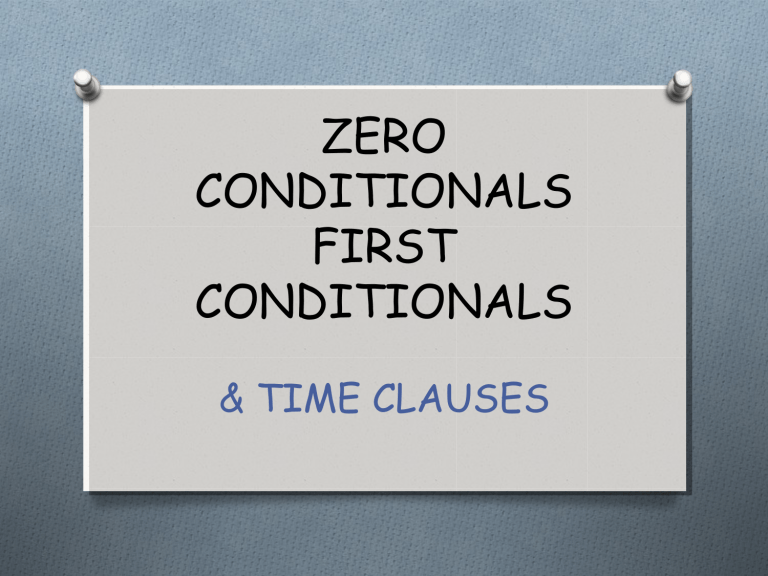
ZERO CONDITIONALS FIRST CONDITIONALS & TIME CLAUSES CONDITIONAL SENTENCES O Conditional Sentences are also known as Conditional Clauses or If Clauses. O They are used to express that the action in the main clause (without if) can only take place if a certain condition (in the clause with if) is fulfilled. ZERO CONDITIONALS O Zero conditionals are used to talk about things that are always true as long as the condition occurs. If you heat water, it boils. If I have coffee after 6pm, I don´t sleep ZERO CONDITIONALS Zero Conditional sentences are formed as follows: IF Present Simple Present simple ZERO CONDITIONALS O This use is similiar to, and can usually be replaced by, a time clause using ‘when’. If I am late for the school bus, my father takes me to school. When I am late for the school bus, my father takes me to school. FIRST CONDITIONALS First Conditional sentences express a possible condition and its probable result in the future. CONDITION RESULT If you don’t revise, you’ll fail. If you stay, I’ll leave. FIRST CONDITIONALS We can use the First Conditional to express different functions: Careful!, If you touch that, you’ll get burnt. A warning If you do that again, I’ll kill you. A threat FIRST CONDITIONALS I’ll post the letter if you like. An offer If you lend me the money, I’ll kiss you. A promise FIRST CONDITIONALS First Conditional sentences are formed as follows: will IF Present Simple Be going to can/must FIRST CONDITIONALS Examples: O If you go to Greece for your holidays, I can recommend a great hotel. O If you aren’t here by ten, you’ll miss the bus. O If you arrive early, we are going to see a film. FIRST CONDITIONALS THINGS TO CONSIDER: O The main clause and the if-clause can often go in either order: O If I feel like going out, I’ll give you a call. O I’ll give you a call if I feel like going out. O Use a comma after the if-clause. TIME CLAUSES O Time clauses and conditional sentences have something in common: O Conjunctions of time O as soon as O when O until O before O after are always followed by a present, even though the time reference is future. TIME CLAUSES EXAMPLES: O I’ll phone you when I get home. O As soon as I’ve finished reading the book, I’ll lend it to you. O Don’t press that button until I tell you. O Before I get to work, I always have a coffee at Starbuck’s. O I’ll go shopping after he takes the children to school. “If” or “in case”? “In case” is not exactly equivalent to “if”. Consider these examples: I´ll take a jacket if it´s cold. It means I´ll take a jacket only if it´s cold. I´ll take a jacket in case it´s cold. I´ll take a jacket anyway because it might get cold later.
